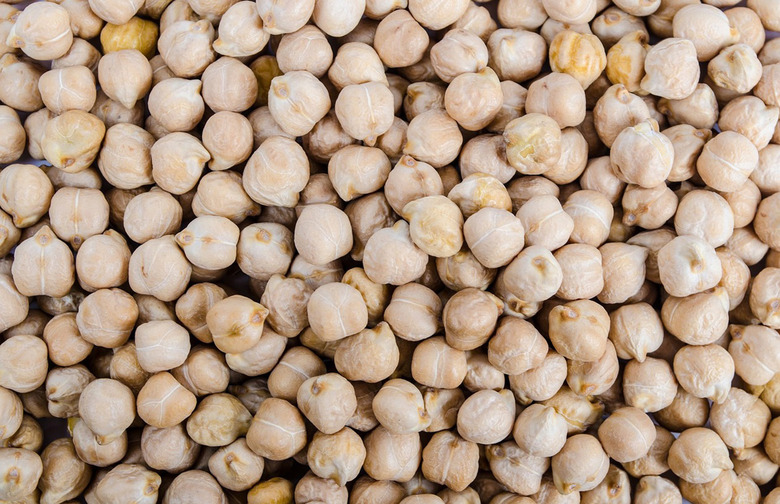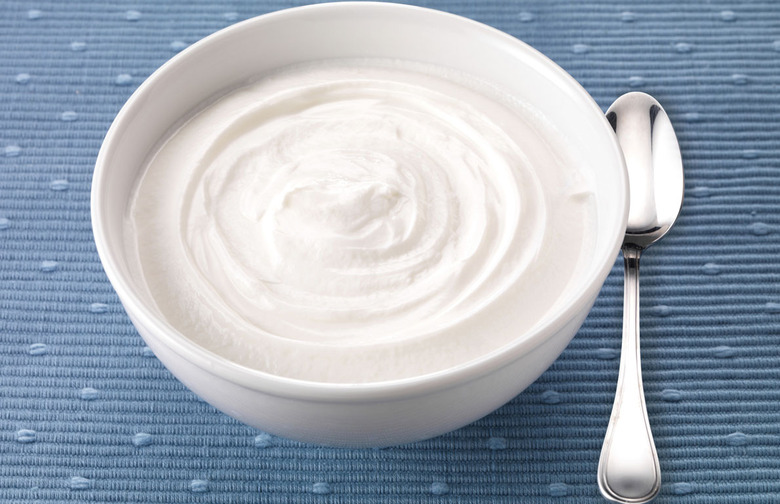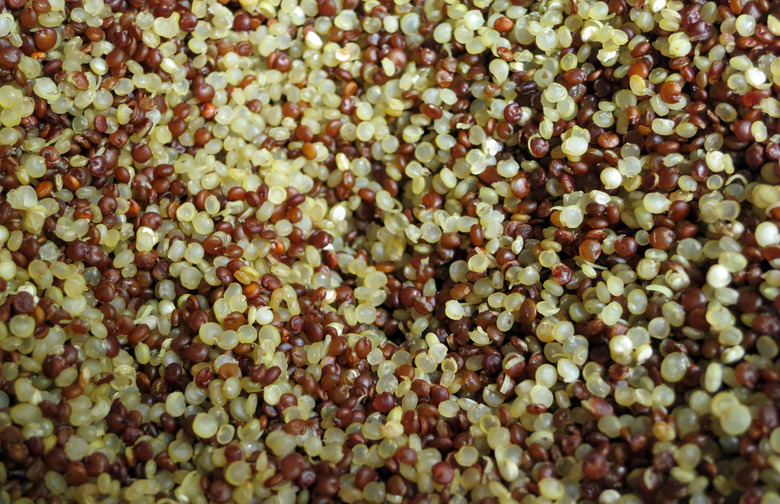10 Signs You Have A Vitamin Deficiency And What You Should Eat To Change That
We may receive a commission on purchases made from links.
Vitamin deficiency is difficult to pinpoint, specifically because you can experience a range of symptoms that are a result of not eating enough nutritious foods. Whether it be fatigue, dizziness, muscle weakness, mental confusion, or shortness of breath, vitamin deficiency can cause you to experience uncomfortable sensations. We spoke with Dr. Romy Block and Dr. Arielle Levitan, co-authors of The Vitamin Solution: Two Doctors Clear the Confusion about Vitamins and Your Health, about the vitamins and minerals deficiencies that are worth investigating if you are experiencing health problems.
B12
Many B vitamins, such as B1, B3, B6, and B12 play an important part in your health. "Of all the B vitamins, the most common deficiency we see in practice is that of B12," said Block and Levitan. "This vitamin is found in common foods, including meat, dairy, and fish; however, depending on your diet and your ability to absorb B12, you may need extra. B12 is needed for proper functioning of the nervous system, and if you lack this vital component, your nerves are essentially sluggish and you may experience neurological issues, such as memory loss, numbness and tingling, and fatigue. Adequate replacement of B12 through pills, nasal sprays, or shots has been shown to be effective."
Biotin
Biotin is also known as vitamin B7, which is a key building block for various proteins in the body. "It is best known for its role in helping with growth of hair and nails," Block and Levitan said. "Replacing it is key. While it is found in cauliflower, egg yolks, and mushrooms, many other foods such as egg whites actually interfere with its absorption in the GI tract so supplementing it can be important."
Calcium
"While we do not necessarily feel the effects of not taking in enough calcium immediately, long term there can be serious consequences," Block and Levitan said. "We store calcium in our bodies, namely in our bones. When we are not taking in enough calcium via diet (or absorbing it properly with the help of vitamin C), our body draws from the calcium in our bones and breaks down bone mass, leaving us with low bone density, which can, at critical levels become osteoporosis. We are then at risk for fragility fractures of our bones. Calcium is found most commonly in dairy products — yogurt, cheese, milk — but also in significant amounts in dark greens, almonds and chickpeas."
Iodine
"The body needs iodine to make thyroid hormones, which control the body's metabolism and foster proper bone and brain development during pregnancy and infancy," Block and Levitan said. "There are a number of natural sources of iodine in our diets and you can get recommended amounts of this mineral by eating a variety of foods, such as salt water fish, dairy products and soy milk. While many Americans are getting the recommended level of iodine in their diet, many others, especially those on a low salt diet, are ingesting low amounts of this mineral."
Iron
"Found in every cell of the body, iron is considered an essential mineral because it is used by your body to hold on to oxygen in your blood and transport it to your tissues," Block and Levitan noted. "At the cellular level, iron is used to make energy and fuel enzymes. Many people with iron deficiency report symptoms of fatigue, brain fog, lack of energy, depression and even hair loss. Iron deficiency may be due to blood loss, poor diet, or an inability to absorb enough iron from foods. Too much iron can damage your body and cause an upset stomach and constipation." Red meat, dried beans, spinach, and select fish are some of the best dietary sources of iron.
Magnesium
"Magnesium is important for many processes in the body, including regulating muscle and nerve function, blood sugar levels, and blood pressure and making protein, bone, and DNA," Block and Levitan said. "Also, studies have shown magnesium can help reduce the frequency of migraine attacks in people with low levels of this mineral. The amount of magnesium you need depends on your age and sex."
"Magnesium is found naturally in many foods, such as legumes, nuts, seeds, whole grains, and green leafy vegetables, and is added to some fortified foods," they said. "Low levels of magnesium for long periods of time can results in loss of appetite, nausea, vomiting, fatigue, and weakness. The National Institutes of Health notes that extreme magnesium deficiency can cause numbness, tingling, muscle cramps, seizures, personality changes, and an abnormal heart rhythm."
Thiamine
"Vitamin B1, also known as thiamine is key for brain and nerve function," Block and Levitan said. "Its deficiency, often seen in those who overindulge in alcohol (alcohol use seems to interfere with thiamine absorption) can cause serious issues with memory and brain function. Thiamine can be found in grains, beans, nuts, and meat."
Vitamin C
"This important vitamin is often touted for its role in immunity but it also plays a key role in building bones, cartilage, teeth, and hair," Block and Levitan advised. "The severe deficiency of vitamin C, is also known as scurvy and is characterized by bleeding gums (from poor collagen formation), teeth falling out, brittle hair, and skin problems. Vitamin C is found in citrus fruits, strawberries, and red peppers."
Vitamin D
"Essential to every cell in the body, vitamin D was first identified for its utility in helping facilitate calcium absorption and building bones; however, in recent years, vitamin D deficiency has been linked with many conditions, including cancer, dementia, and depression," Block and Levitan warned. "Ideally, your body synthesizes vitamin D in your kidney and liver after you've been exposed to sunlight, but many of us lack adequate sun exposure due to climate, spending time indoors, and the widespread — although important — use of sunscreen."
"There are few foods that have therapeutic levels of vitamin D naturally (wild caught salmon is one of the best dietary sources), and even fortified foods do not contain enough vitamin D to support your health needs," they said. "Because vitamin D can be difficult to obtain, we suggest working with your doctor to determine your vitamin D level and then supplementing to address any deficiency. If you need to supplement, be sure to take a high-quality personalized multivitamin to address your individual needs."
Zinc
"Zinc is a heavy metal that plays an important role in immune function and wound healing," Block and Levitan said. "Deficiency can cause propensity to illness and trouble with healing. Zinc can be found in meat, dairy products, nuts, whole grains, and legumes."










